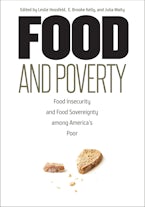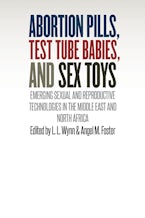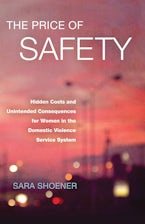- Home
- As Goes Bethlehem

As Goes Bethlehem
Steelworkers and the Restructuring of an Industrial Working Class
The steel industry played a central role in building post–World War II economic success in the US and in defining the parameters of the post–World War II social contract. As these long-term processes both preceded and contributed to the Great Recession, a new capitalism—one in which banks and the credit system took precedence over industrial production—changed the lives of many American workers, including steelworkers. As Goes Bethlehem raises important questions about why workers and their unions were not able to successfully contest this attack on industrial labor, instead settling for best navigating a long downward trajectory.
Through the experiences and reflections of steelworkers, Jill A. Schennum demonstrates the significance of work, and particularly of industrial work, in giving meaning to people’s lives, identities, and sense of worth. She uses workers’ narratives and voices to show the importance of work space, time, and social relations, rejecting dominant interpretations of blue-collar workers as alienated from their work but well-paid and co-opted by a middle-class standard of living. Schennum covers thirty-five years of investment and disinvestment, managerial initiatives, transfer decisions, layoffs and downsizings, external transfers, the eventual bankruptcy of the Bethlehem Steel Corporation, and movement into retirement, unemployment, and new postindustrial jobs.
The very solidarities, rights of citizenship, and rule of law forged in the mill and built on by the union were constructed, in part, through exclusions based on race, ethnicity, gender, and region. These lines of fracture were mobilized to undermine working-class strength in the postindustrial period. Through the experiences of African American, Puerto Rican, coal country, and women workers in the steel mills, this book explores these issues of fracture and solidarity.
Through the experiences and reflections of steelworkers, Jill A. Schennum demonstrates the significance of work, and particularly of industrial work, in giving meaning to people’s lives, identities, and sense of worth. She uses workers’ narratives and voices to show the importance of work space, time, and social relations, rejecting dominant interpretations of blue-collar workers as alienated from their work but well-paid and co-opted by a middle-class standard of living. Schennum covers thirty-five years of investment and disinvestment, managerial initiatives, transfer decisions, layoffs and downsizings, external transfers, the eventual bankruptcy of the Bethlehem Steel Corporation, and movement into retirement, unemployment, and new postindustrial jobs.
The very solidarities, rights of citizenship, and rule of law forged in the mill and built on by the union were constructed, in part, through exclusions based on race, ethnicity, gender, and region. These lines of fracture were mobilized to undermine working-class strength in the postindustrial period. Through the experiences of African American, Puerto Rican, coal country, and women workers in the steel mills, this book explores these issues of fracture and solidarity.
Jill A. Schennum is a professor of sociology and anthropology at County College of Morris in Randolph, New Jersey.
"As Goes Bethlehem disrupts and adds to deindustrialization narratives in two ways. First, it is the story of a steel mill that took an agonizingly long time to shut down, unlike so many brutal plant closings that shocked industrial workers seemingly overnight. Though this undoubtedly benefited the town of Bethlehem, giving it time to adjust, it challenged mill workers with its decades of "incrementally increasing precarity" during which they had to decide and re-decide whether to hang on to scraps of jobs, sometimes in other cities, or to cut ties to steel and create a new life for themselves with degraded wages and conditions. But tucked inside this narrative of deindustrialization, Jill Schennum takes us deep inside the labor process, moral economy, and systems of exclusion when the mill was working at its height to show in heart-breaking detail what was lost, both the good and the ugly, when union-protected workplaces were scrapped. Based on extensive interviews with three cohorts of workers, no book to my knowledge, including memoirs, captures the social, economic, and moral complexity of industrial workplaces and the variety of workers’ responses to them. In doing so, Schennum tells a larger story of capitalist restructuring and the degradation of work life in the past four decades. As Goes Bethlehem is a tour de force of richly balanced analytic rigor and empathetic heart."
—Jack Metzgar, author of Bridging the Divide: Working-Class Culture in a Middle-Class Society
"As Goes Bethlehem is a brilliant, humane, and important book. Jill Schennum reveals the many precious things that rank-and-file steelworkers gained from the unionized industrial workplace they created. And she reveals the terrible price they have paid, like millions of other American workers, for profit-driven deindustrialization."
—Seth Moglen, author of Mourning Modernity: Literary Modernism and the Injuries of American Capitalism
"As Goes Bethlehem highlights the collaboration between elite stakeholders and politicians in reshaping the neoliberal order, despite the efforts of working people."
—Naomi R. Williams, coeditor of A Racial Reckoning in Industrial Relations: Storytelling as Revolution from Within











